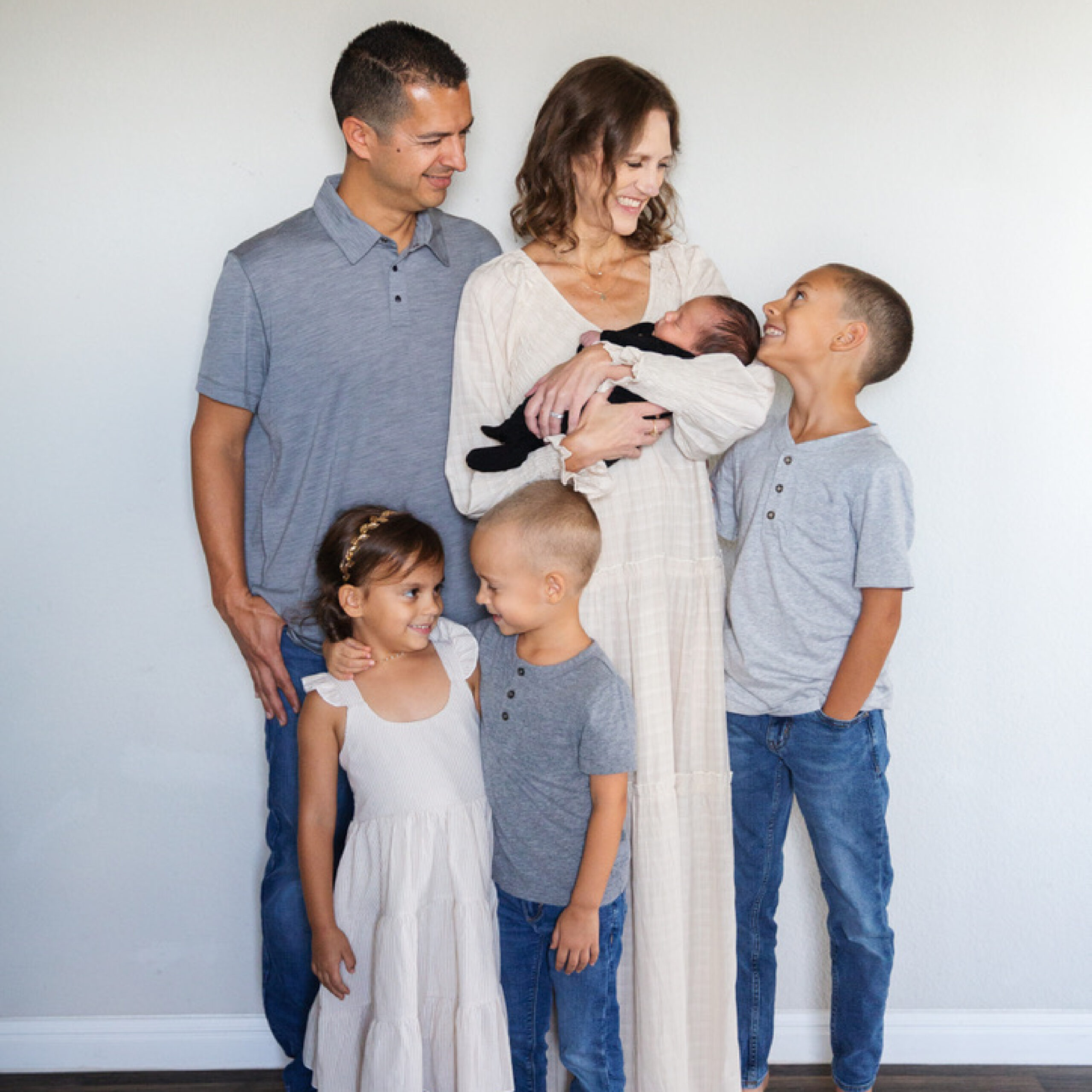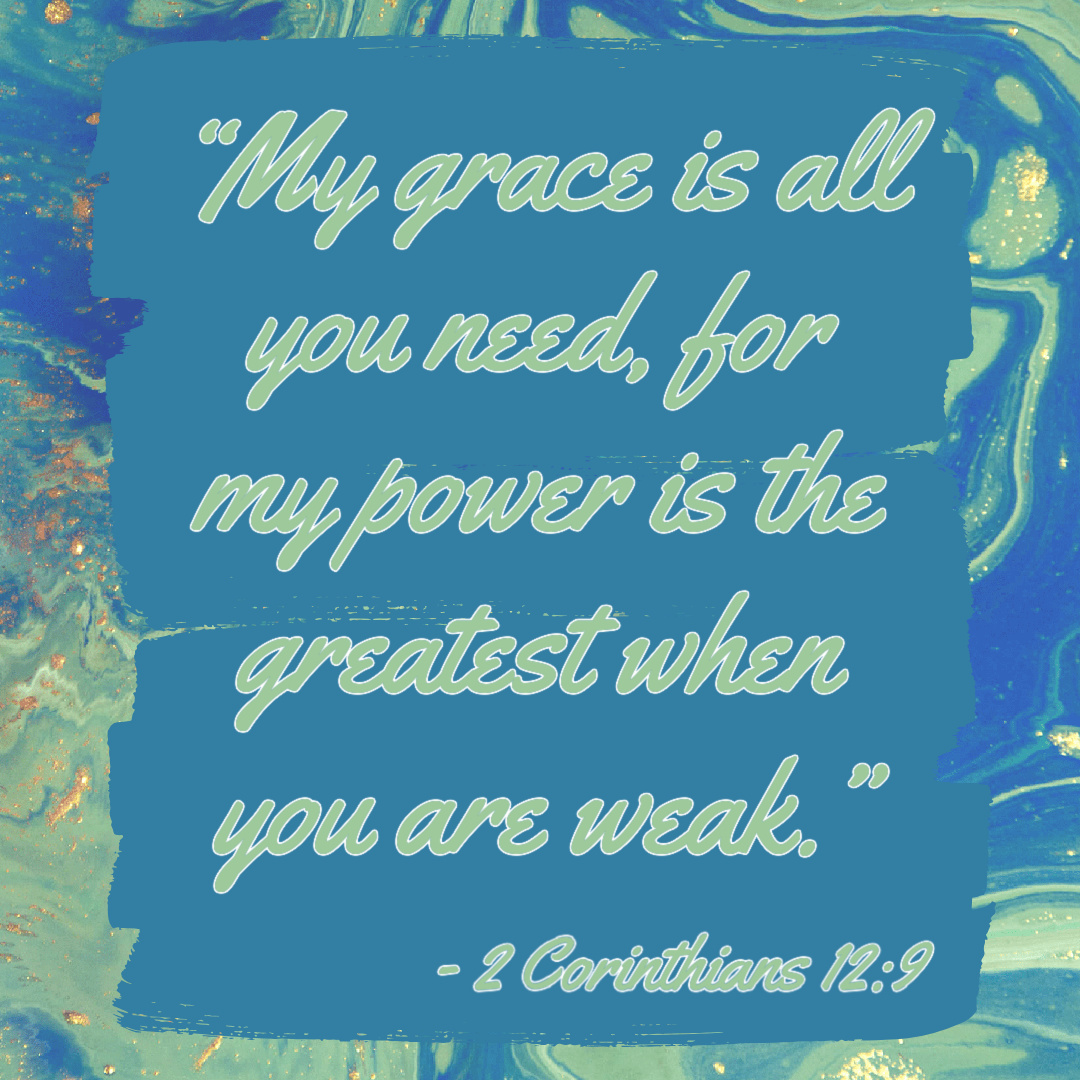“Mama?” Kali’s quivering voice belied her confidence as she broke through the cacophony of voices clamoring for my attention. “Before Sully and I were born, did Charlie have all your love?” Her inquisitive eyes gazed deeply into mine for a moment before turning back to her bowl of spaghetti as she awaited my response.
It was a big question, offered seemingly out of the blue as our family gathered around the dinner table for a weeknight meal. A bit of probing from Luke and me helped us discern the assumptions behind Kali’s questions. To her young mind, a parent’s love was a pie to be portioned out among children. By Kali’s math, Charleston held the whole of our love pie during his five years as an only child. That pie got divided when Kali and Sully were born, and divided again with the arrival of their little brother. Kali wondered what it must have been like for Charleston to be in possession of so much love that must now be distributed amongst four recipients.
We assured Kali that love doesn’t work that way. For the years when Charleston was our only kid, we loved him a whole lot. And when Kali and Sully were born, that love for Charleston did not diminish; it was simply joined by two heaping helpings of NEW love that we felt for each of the twins. That love multiplied yet again with Nico’s arrival to our family.
“Love isn’t like most things,” we explained to the listening ears around our table. “Its portions don’t get smaller when they’re spread out between more recipients; they multiply. Instead of shrinking, love grows!”

Before having children, I never believed other parents when they insisted they did not have a favorite child. Now I know they were telling the truth. I love each one of my children vastly, completely, entirely. Not equally—because the love I hold for each of them is as unique as each child him or herself—but absolutely equivalently, and with a love I could not have fathomed before becoming their mom.
Even though I am now more than a year into my current “mom-of-four” gig, I’m STILL pinching myself: it feels too good to be true that God would be so generous as to give me all these kids for my very own. Growing up, it was just my brother and me. We hardly knew any families with three children, let alone more than that. My upbringing set me up to assume I’d have a small family of my own one day. I am SO THANKFUL that God’s plan for our family was bigger than my limited dreams. As our family has grown, so has my capacity to love every one of my kids with an ever-growing love.
Though my love may feel limitless, my time and capacity are not: I love every one of my four children with the same amount of love I felt for Charleston when he was my one and only, but I’d be lying if I said that they got the same amount of time and attention he once got from me. This is something I wrestle with every day. It pains me to think of the moments I miss with one child while tending to the needs of another. I experience heavy guilt over the activities my kids don’t do, the excursions we don’t attend, the playplaces and restaurants we don’t frequent because there simply isn’t room in our budget or our schedule to do these things as a family of six. I worry about the gaps my kids may find in their education because our school day doesn’t allow for customized, one-on-one lessons with each child. I fear they may feel neglected when I don’t notice every hurt and can’t care for every pain.
The inner critic is loud, but on good days—when I remember to tune out the guilt-laden inner monologue and tune into the Truth—God’s voice is louder. I believe that God equips us to handle everything He asks us to do. He has asked me to raise four children, and so I can trust that He will empower me to fulfill this God-given role. I believe Him when He says He will give me the wisdom and strength to be the mom my kids need me to be.

I was encouraged by a podcast I heard recently in which moms of large families (we’re talking seven or eight children) expounded the benefits of schooling multiple children at home. They talked about the benefits to multi-age learning, where older kids get a chance to revisit and solidify material as they teach it to younger siblings, and where younger kids have an experienced learner who is NOT their parent to look up to and learn from. The episode reminded me that a homeschool does not need to look like a traditional classroom and that material does not need to be learned at a certain age to be effective; it’s okay for learning to be communal, even if that means that our children aren’t learning things at the same ages as their school-attending peers. The women also reframed the chaos of a “full” family schoolroom that fosters flexibility, a spirit of community, and agency among children as they take on portions of their own learning away from Mom’s smothering oversight.
The podcast reminded me of the ways that my kids fill in the gaps for one another when there isn’t enough of me to go around: the way Charleston carried Kali home on his back when she hurt her leg on a walk last week, and how Sully listens to her sound out words while I change Nico’s diaper. The mornings when Kali and Sully entertain each other with board games and hours of imaginary play while I help Charleston diagram sentences, and the afternoons when the three of them help each other with chores while I nurse Nico through a nap.
I’ve seen Charleston’s understanding and enthusiasm for History explode this year as Kali and Sully join in on this subject for the first time: Charleston’s recognizing how much he already knows, and can’t wait to share it with his fellow students. For their part, Kali and Sully are eager pupils because they admire their older brother and want to learn everything they can from him. It’s not uncommon for them to go to Charleston with their questions before they come to me; to their young eyes he’s every bit as much of an expert as Mom. (When it comes to technology and Legos, he’s definitely their best hope for assistance!)
I can only imagine how much Nico is picking up as he listens in on our school lessons. As the fourth kid, he’s getting the chance to absorb information now that I didn’t introduce to Charleston until many years into his schooling. While my little guy will likely get the least of my attention when it comes to his studies, he will have the benefit of three older siblings who will undoubtedly jump at the chance to share their hard-earned knowledge with their brother. It’s already happening as they teach him how to talk and play and sign new words.
Making plans around four children is tough, so our family doesn’t do as many playdates as other families, but my kids get tp live one ongoing playdate with each other. And while other kids are participating in organized sports, my children get to run around our yard making up games of their own. I hope that when they grow older, they won’t look back with regret on the things they didn’t get to do, but with gratitude for the blessings that came from being a part of the pack of four that is the Jernejcic siblings.

There are perks to every family size. I loved growing up in a two-kid family, AND I love having four kids of my own. I can celebrate the advantages and unique beauty of both family sizes—as well as families with just one kid, or with eighteen!—without resorting to guilt-laden comparisons and unhealthy if-onlys. I can experience gratitude for my always-expanding love, and acceptance for the parts of me that don’t expand. . . because those gaps are always filled. Maybe not by me, but perhaps in ways that are even better than I could have filled them myself.
I’ve written about this subject before, and I’m certain I’ll write about it again because it’s a topic that is always on my mind. When I’m tempted to listen to the enemy’s lies—that there’s not enough of me to go around, that I’m failing my kids, that I cannot possibly give them the quality childhood or education or parenting that they deserve—I need to remind myself of what is true. The truest thing of all is that God holds our family in His capable hands. His love for us is endless, His wisdom is unfailing, His provision is supreme. My children (and my husband and I) are cared for; we lack nothing.